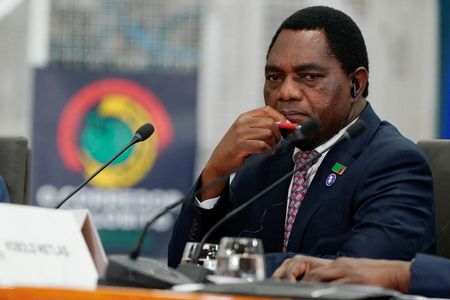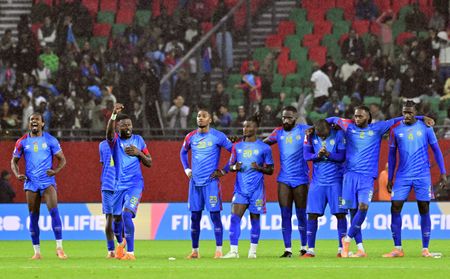By Garba Muhammad
KADUNA, Nigeria (Reuters) -Nigeria said on Wednesday an “unholy handshake” was forming between criminal gangs and Islamist insurgents in its violent north where the death toll from the latest attack soared to 154.
The armed gangs, locally known as bandits, have terrorised villagers for years through kidnappings for ransom but they have recently become more brutal, killing and pillaging communities where state security agents are rarely seen.
“What is happening now is that there is a kind of an unholy handshake between bandits and Boko Haram insurgents,” Information Minister Lai Mohammed told reporters after being asked to name those behind Sunday’s attack in Plateau state.
He added that preliminary investigations from last month’s attack on a passenger train in the northern Kaduna state also showed “there is a kind of collaboration between the bandits and the dislodged Boko Haram terrorists from the northeast.”
The fight against Boko Haram and later Islamic State West Africa Province has been going on for 12 years, killing thousands and uprooting millions from their homes.
GUNMEN ON MOTORBIKES
But such attacks are not common in Plateau, which shares a border with Kaduna.
Ya’u Abubakar, a senior councillor of Garga rural district in the Kanem local government area of Plateau, told Reuters that villages were on Sunday attacked by gunmen on motorbikes who shot sporadically.
Houses and shops were burnt to the ground and some people who tried to hide in nearby bushes were pursued and shot, their bodies discovered this week, he said.
Abubakar said there were mass burials as shocked communities tried to come to terms with the violent attack.
“All in all we have in our records (the number) of those killed at 154, including those found in bushes,” Abubakar said by phone.
The figure was three times higher than the initial toll found.
Soldiers have been deployed to secure the area and pursue the gunmen.
(Reporting by Garba Muhammad in Kaduna, Maiduguri newsroom and Felix Onuah in Abuja, writing by MacDonald Dzirutwe, editing by Simon Cameron-Moore and Aditya Soni)






